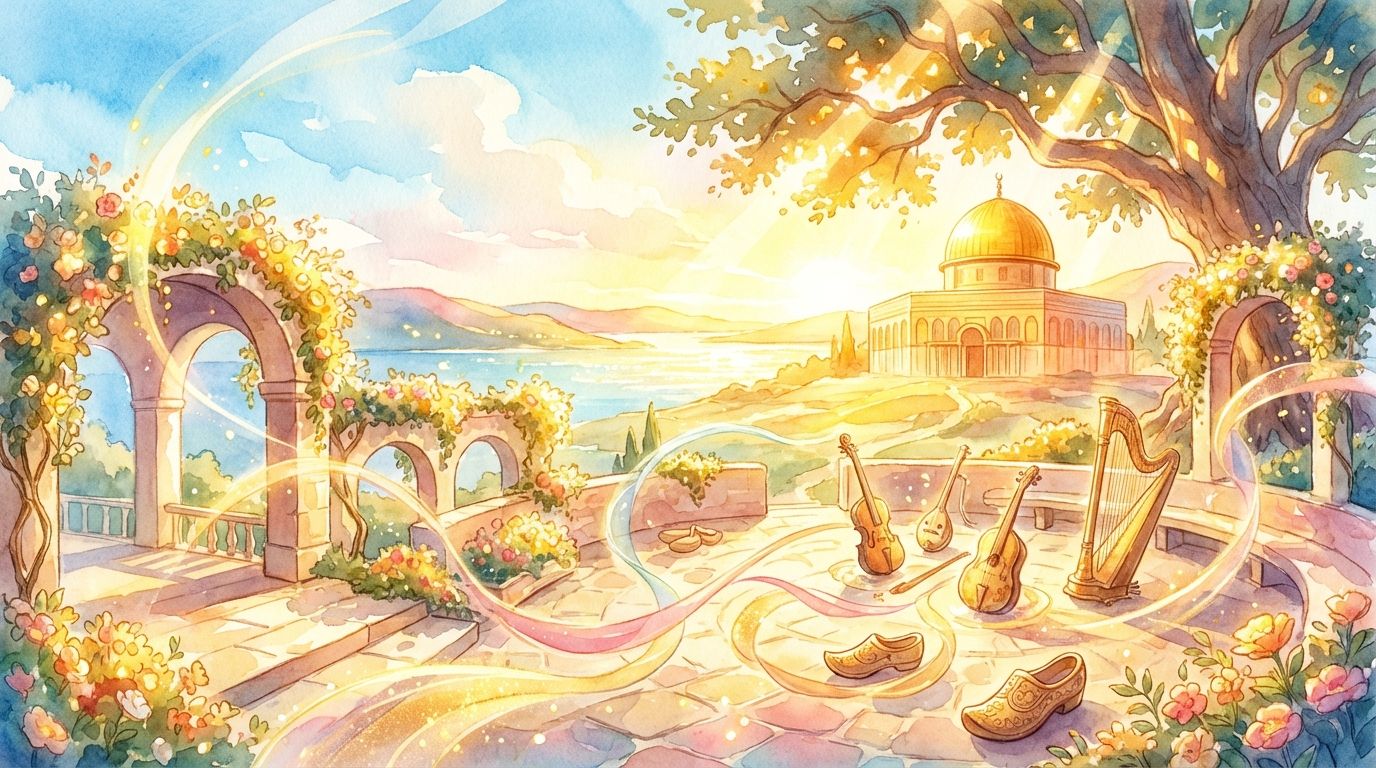Yamim Noraim - Days of Awe
You are great and do wonders, You alone, O G-d...In Your hands are the depths of the land and the loftiest mountains too... In His hands are the souls of all living things, and the spirits of all men (Selichot)
May we be inscribed in the Book of Life, blessing, peace, good sustenance, favorable decrees, salvation, and consolation... (addendum to the daily Amidah for the Ten Days of Repentance)
On Rosh HaShanah, the Gates of Heaven are opened to receive our petitions and prayers. Ten days later, on Yom Kippur and during the final moments of the Neilah service, these gates will close as we pray that all be sealed in the Book of Life. Rosh HaShanah is the beginning and Yom Kippur is the culmination of the special ten day season within which man is offered the opportunity of a spiritual recovery by strenuous personal effort.
The theme of the Days of Awe is the concept that G-d has three books that in one He writes down who for the next year will live and who will die, who will have a good life and who will have a bad life. These books are:
"The Perfectly Righteous which are immediately inscribed and sealed to life; the Completely Wicked who are also immediately inscribed and sealed to death; and the Intermediate who are in suspense since they will neither be punished nor acquitted until Yom Kippur. If they repent, they are inscribed to life; if not, they are inscribed to death." (Rosh HaShanah 16b)
Our actions during the Yamim Noraim can altar G-d's decree. The actions that can altar the decree is Teshuvah (Repentance), Tefillah (Prayer) and Tzedakah (Good Deeds, i.e. usually Charity). These books are then sealed on Yom Kippur.
In Dani'el 7:10 we find mention of books openeed in the Heavenly Court:
"The court sat in judgment and the books were opened."The Mishnah (Avot 2:1; 3:20) speaks of the record of man's actions in the Books of Heaven:
"The ledger is open and the hand writes."Yeshayahu (65:6) and Malachi (3:16) both allude to the divine recording of the deeds of the righteous and of the wicked. The Book of Life is mentioned in Yeshayahu 4:3; Tehillim 69:29; Dani'el 12:1.
During the Day of Judgment (Rosh HaShanah) each of us pass in front of HaShem like a flock of sheep, the tenth day of this month is Yom Kippur, the day on which the decree penciled in on the Day of Judgement will be signed and sealed. The ability of Yom Kippur to forgive our sins is dependent on our sincere teshuvah. People who do not repent their sins do not have them forgiven in spite of having lived to this date and beyond it.
The first of the month (Rosh HaShanah) which is a Day of Judgment is applicable both to repentant sinners and those who do not repent. However, Yom Kippur and its benefits apply only to those who have repented.
TESHUVAH
"Whenever you find the word "now" in the Torah, it refers to repentance" (Bereishit Rabbah 21)
The key to teshuvah (repentance) is prompt recognition and admission that we have done something wrong. We must admit now, rather than later. Too often we may tend to rationalize and explain away our behavior, insisting that we were right in what we did. Only after all our rationalization are exhausted do we reluctantly concede that we were wrong.
The Rabbis teach us that it is unwise to defend a mistake. If we promptly admit a mistake, it is so much easier to correct it. After all, correcting mistakes is really what repentance is all about, and a major portion of spiritual growth is just that - correcting mistakes.
Although repentance is effective and desirable at all times, the Talmud says that the days between Rosh HaShanah and Yom Kippur are especially propitious for repentance. At the end of the year, a person is more apt to make an accounting of the bygone year, and see whether he is indeed where he had hoped to be at this time. If he sees that he has not utilized the year well, he may be more determined in his resolve to improve in the year to come. In addition, during these special days one is joined by many others in repentance, and the collective virtue is of great merit.
"I am He who removes your sins for My sake, and your transgressions I will not recall" (Yeshayahu 43:25)
"If You, O G-d, will mark the iniquities of man, then who can stand before You? For with You there is forgiveness, so that You may be feared" (Shacharit; Tehillim 130:3,4)
Fear of G-d...the true meaning of fear of G-d is that we should be aware that when we deviate from His will, we are injuring ourselves jut as if we were to ingest a poisonous substance. Sin is destructive,a nd we should therefore fear it as we would fear anything that is very dangerous. Although we may not be able to undo the physical harm that we do to ourselves, G-d assures us that if we repent, He will undo the spiritual harm that we have done to ourselves.
We dare not abuse this grace, this wonderful gift of forgiveness.
לְשָׁנָה טוֹבָה תִּכָּתֵבוּ וְתֵחָתֵמוּ
(May you be inscribed and sealed for a good year!)
Good Yom Tov - Rosh HaShanah!
Ketivah Vachatimah Tovah!
I ask Mechilah from anyone I may have hurt with my words, whether intentionally or unintentionally. Please accept my Mechilah for same. May G-d forgive us all our sins. And may we all merit a Shanah Tovah Umetukah… a sweet new year.
....

















.gif)



